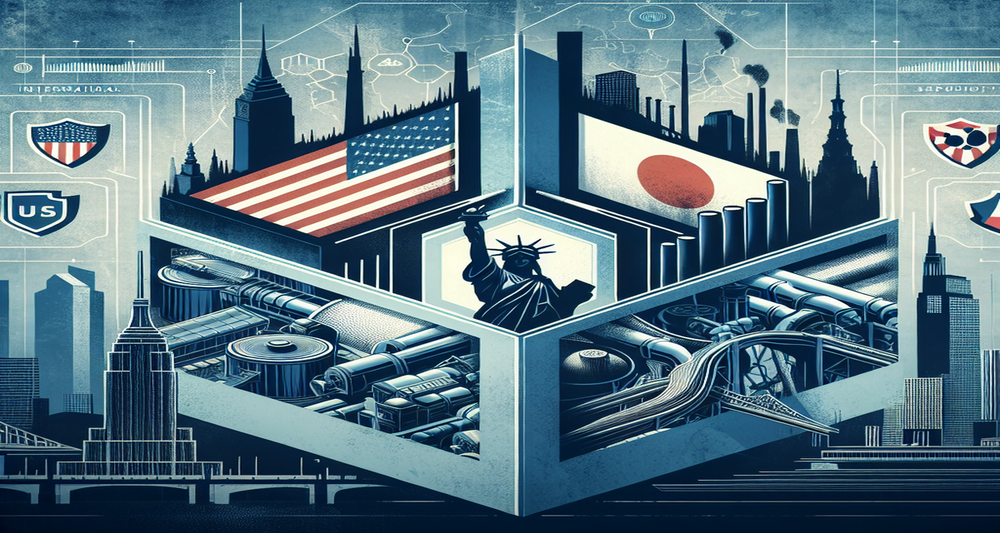President Joe Biden has decided to intervene in the proposed acquisition of U.S. Steel by Japan’s Nippon, citing national security concerns. This decision underscores the administration’s ongoing efforts to protect American industries deemed essential for the security and economic health of the country.
The Context of the Takeover
The proposed deal between U.S. Steel and Nippon, one of Japan’s largest steelmakers, has been in the works for several months. Such international takeovers are not uncommon, as globalization continues to interlink economies. However, when it comes to core industries such as steel production, the dynamics can be a bit more intricate.
Significance of U.S. Steel
U.S. Steel is a key player in the American manufacturing sector with a long history dating back to the early 20th century. Its role is particularly crucial for:
- Defense: Steel is fundamental in the production of military equipment, vehicles, and infrastructure.
- Infrastructure: It is a vital component in the construction of bridges, buildings, and transportation networks.
- Employment: Thousands of Americans rely on jobs provided by U.S. Steel and its ancillary industries.
National Security Concerns
The Biden administration’s decision to block the takeover is driven by potential national security implications. The government has highlighted several key concerns:
- Foreign Influence: The acquisition of an essential U.S. industry by a foreign company could lead to undue influence over sensitive economic sectors.
- Supply Chain Vulnerabilities: Dependence on foreign-controlled entities for critical materials can create vulnerabilities, especially during geopolitical tensions.
- Technological Transfer: Unauthorized transfer of proprietary technology and methodologies could weaken national security.
Historical Precedents
This is not the first time an American administration has blocked a foreign takeover for security reasons. Past instances include:
- The rejection of China’s Ant Financial from acquiring MoneyGram in 2018, due to concerns about data privacy.
- The blocking of Broadcom’s attempt to take over Qualcomm in 2018, to prevent compromising the future of U.S. leadership in 5G technology.
Reactions from Key Stakeholders
Industry Experts
Industry experts have had mixed reactions to the decision. Some argue that the blockage is necessary for preserving national security, while others believe it could hinder foreign investments:
- Supporters claim that protecting strategic industries is critical in maintaining a strong national stance.
- Critics suggest that obstacles to foreign investment could affect the country’s economic growth.
Political Response
The political response has also varied. Lawmakers from both sides of the aisle have weighed in:
- Several bipartisan members have supported the decision, emphasizing the need to safeguard national interests.
- However, some have expressed concerns about potential diplomatic repercussions with Japan.
What This Means for Future Takeovers
The decision to block Nippon’s takeover bid for U.S. Steel sends a clear message: the U.S. government is committed to scrutinizing foreign investments in critical industries rigorously. This can set a precedent for future deals and could mean:
- Stricter scrutiny and regulatory frameworks for future foreign acquisitions.
- Greater emphasis on maintaining domestic control over essential industrial sectors.
- Possible diplomatic dialogues to establish guidelines for future investments.
The Biden administration’s decision to block Nippon’s acquisition of U.S. Steel highlights the delicate balance between economic globalization and national security concerns. As the world continues to become more interconnected, safeguarding critical industries remains a top priority for any nation. While the long-term impact of this decision remains to be seen, it is a clear indication of the administration’s commitment to maintaining control over essential sectors.
For more details, you can read the original article here.
Disclaimer
Disclaimer: The information provided in this article is for general informational purposes only and does not constitute professional advice. All content is based on information from sources believed to be accurate at the time of writing. However, the information may be outdated or subject to change. Always seek the advice of a qualified professional regarding any financial, legal, or health-related decisions. The author and publisher of this article are not responsible for any errors, omissions, or results obtained from the use of this information. Reliance on any information provided in this article is solely at your own risk.
“`





 By
By
 By
By



 By
By
 By
By






